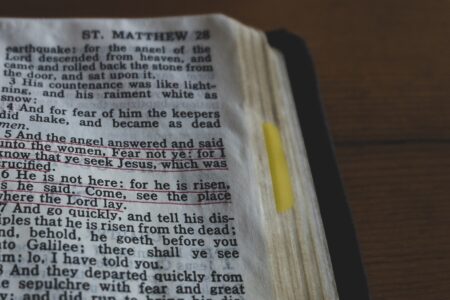By Rev Claire Dawe, minister at Manningham Uniting Church
When the first lockdown began, we all knew how difficult funerals would be to organise and lead, but the ever-changing advice seemed to add to the complexity.
My practice, when possible and appropriate, has been to visit the person who is ailing and offer prayer support to that person and the family. I might leave a holding cross, I might offer a simple anointing, but I always share prayer and words of scripture to offer pastoral, spiritual and emotional support. I have always regarded such ministry at the end of life as being a priority but also a great honour.
When the first lockdown began, I wrote a reflection for the congregation called ‘Grief and dying at this time’ as a way to offer prayer, scripture and poetry and to highlight how the church would lead funerals under those first restrictions. It quickly became apparent I would not be able to offer my usual practice at the end of life and so I tried to think of ways I could equip family members so they did not feel alone or abandoned. Of course, this does not underestimate the incredible work of chaplains and pastoral carers in hospitals and aged care homes. My aim was merely to offer ‘something’ to the congregation to help them through such an awful time.
However, when I was approached by a nursing home to conduct an end of life prayer service during the second lockdown, I was reminded of the power of the words of scripture I quoted in that reflection. Basically, I had to use WhatsApp to offer pastoral care. As I read the words of Psalm 23, the person who was close to death responded physically by opening his eyes. The power of those words had a profound affect on that person and his family member who sat with him in his final moments. No holding cross or oil was required, just the sacred words of that Psalm and being present in the moment.
This profound pastoral encounter was followed by two funerals. Both, in more normal times, would have resulted in a church full of mourners, standing room only. But under the complexities of stage four lockdown, we held them in the chapel of the local funeral director with physical distancing, hand sanitiser, masks and a livestream of the service. Once again, my usual practice went out the window as I was joined by only 10 immediate family members. Despite my nervousness, they were both incredibly intimate services of worship.
When the church is full, family members who aren’t used to public speaking can find the whole thing daunting at best, traumatic at worst. How often as ministers have we stood alongside a family member as they have struggled through a eulogy? Although I spent time addressing the livestream audience, and although the family members were well aware of those watching at home, their sharing of memories was a far more intimate and gentle experience for them. I have been told that the same intimacy was felt by those livestreaming. Despite not being physically able to attend the service, they did not feel excluded.
We offered a remembrance service on Zoom for those who have lost loved ones at this time, those who have been reminded of past grief and those who have been unable to attend funerals due to restricted numbers. Some are waiting until the first anniversary of a person’s death to have a funeral. Others are waiting until we can physically regather in sufficient numbers to pay their respects.
This has no doubt been a difficult time, but I am continually reminded of the importance of being present in whatever way possible, as well as the power of words of scripture. It has caused me to reflect upon which Bible stories and texts people find comforting, and which might ultimately comfort me.





